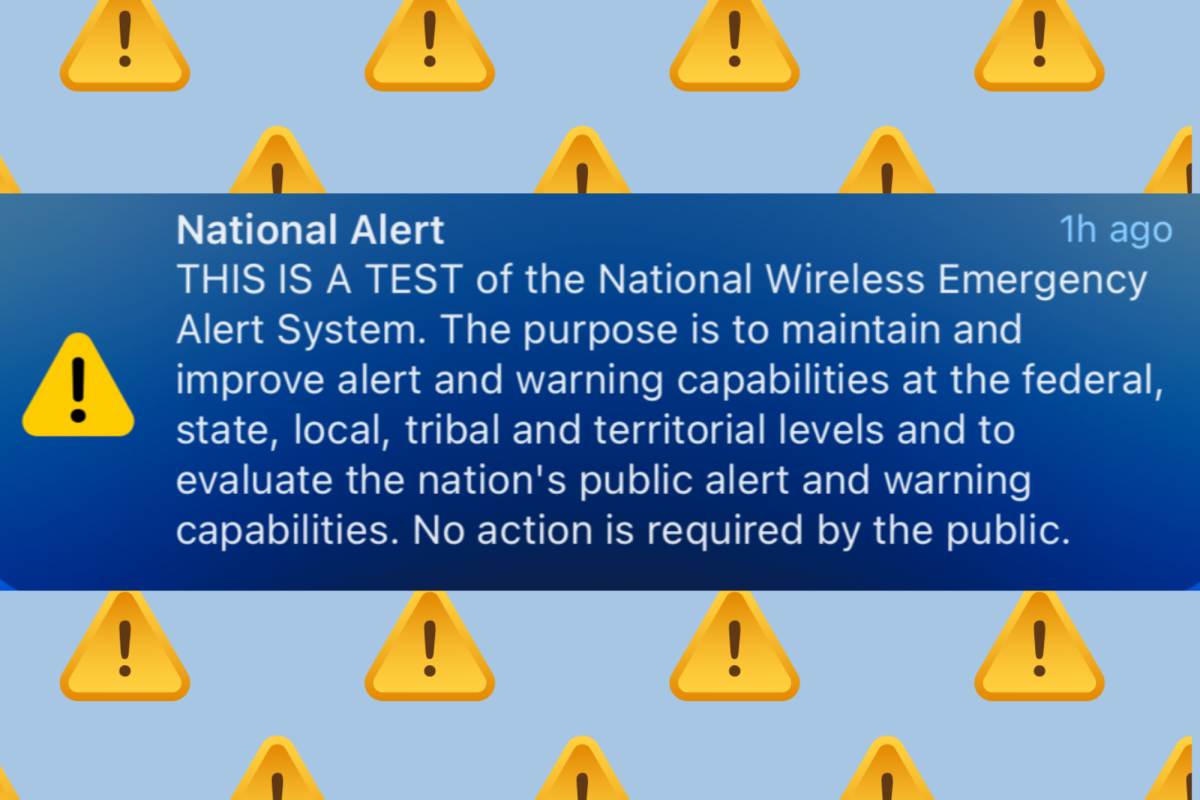On Wednesday, Oct. 4, 2023, the Federal Emergency Management Agency, also known as FEMA, and the Federal Communications Commission FCC sent out a national alert to all cell phones in the United States at approximately 11:20 A.M. PST.
The message read, “THIS IS A TEST (sic) of the National Wireless Emergency Alert System. The purpose is to maintain and improve alert and warning capabilities at the federal, state, local, tribal, and territorial levels and to evaluate the nation’s public alert and warning capabilities. No action is required by the public.”
This Emergency Alert System test wasn’t a complete surprise to all Americans when the loud and abrasive alert went off on their cell phones at around 11:20 A.M. PST. For staff and students at Rancho Cucamonga High School, that was right in the middle of third period. Earlier in the week, FEMA and the United States government announced that this would occur on Wednesday, Oct. 4.
“I saw something about the alert last night, but people were talking about it today in the morning,” sophomore Edward Carver said.
According to the FCC, Emergency Alert System tests such as these are essential in order to ensure that all people residing in the U.S. can remain safe and be aware of anything potentially dangerous occurring in their area.
“The federal government wants to be able to have a warning system that works,” government teacher Mr. Mark Verti said.
Typically, though, cautionary alerts aren’t sent out at the national level like this was. In most cases, the alerts are sent out locally for things like Amber Alerts, missing person alerts, and emergency weather alerts.
Alerts like the one sent out aren’t just used in the United States though. Other countries, such as Japan, the Netherlands, Canada and England have all incorporated their own forms of emergency cellphone alerts to keep their citizens informed. These alerts have been proven effective to at the very least inform citizens in countless cases. For example, the 2018 Hawaii False Missle alert, despite being a fake threat, still was effective in alerting citizens of potential danger heading their way.
While these alerts can be turned off, the FCC highly recommends that the alerts stay on, as in some cases these alerts can actually be life-saving.








